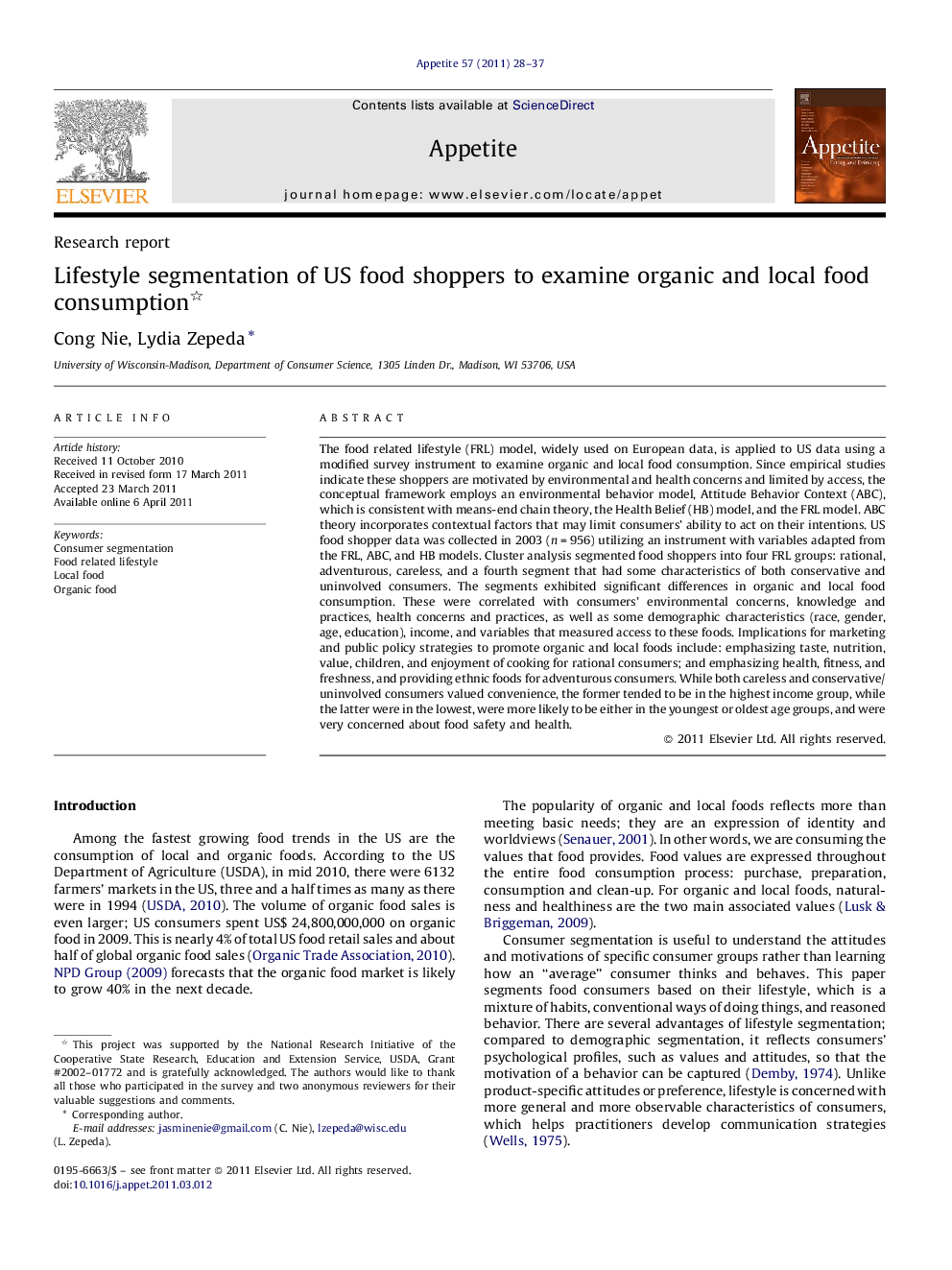| Article ID | Journal | Published Year | Pages | File Type |
|---|---|---|---|---|
| 940273 | Appetite | 2011 | 10 Pages |
The food related lifestyle (FRL) model, widely used on European data, is applied to US data using a modified survey instrument to examine organic and local food consumption. Since empirical studies indicate these shoppers are motivated by environmental and health concerns and limited by access, the conceptual framework employs an environmental behavior model, Attitude Behavior Context (ABC), which is consistent with means-end chain theory, the Health Belief (HB) model, and the FRL model. ABC theory incorporates contextual factors that may limit consumers’ ability to act on their intentions. US food shopper data was collected in 2003 (n = 956) utilizing an instrument with variables adapted from the FRL, ABC, and HB models. Cluster analysis segmented food shoppers into four FRL groups: rational, adventurous, careless, and a fourth segment that had some characteristics of both conservative and uninvolved consumers. The segments exhibited significant differences in organic and local food consumption. These were correlated with consumers’ environmental concerns, knowledge and practices, health concerns and practices, as well as some demographic characteristics (race, gender, age, education), income, and variables that measured access to these foods. Implications for marketing and public policy strategies to promote organic and local foods include: emphasizing taste, nutrition, value, children, and enjoyment of cooking for rational consumers; and emphasizing health, fitness, and freshness, and providing ethnic foods for adventurous consumers. While both careless and conservative/uninvolved consumers valued convenience, the former tended to be in the highest income group, while the latter were in the lowest, were more likely to be either in the youngest or oldest age groups, and were very concerned about food safety and health.
► Food related lifestyle segments using US data. ► Framework combines means-end chain, Attitude-Behavior-Context, alphabet theories. ► Includes environmental and health behaviors, knowledge, access, demographics. ► Distinct differences in organic and local food consumption by segment. ► Strategies for different consumer segments to promote organic and local foods.
